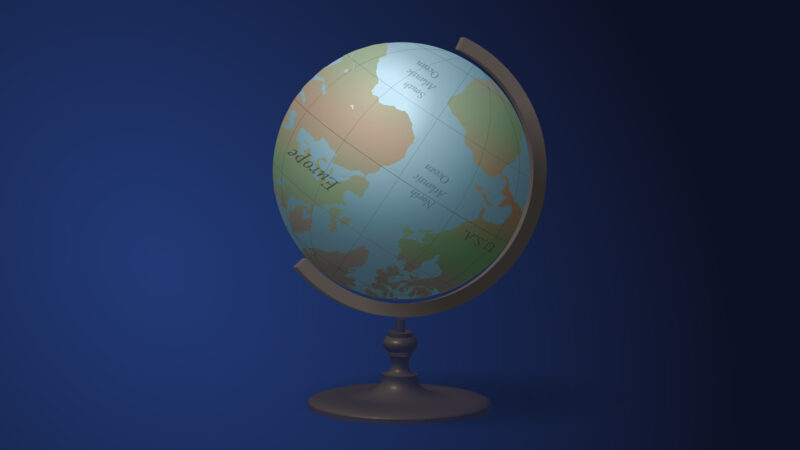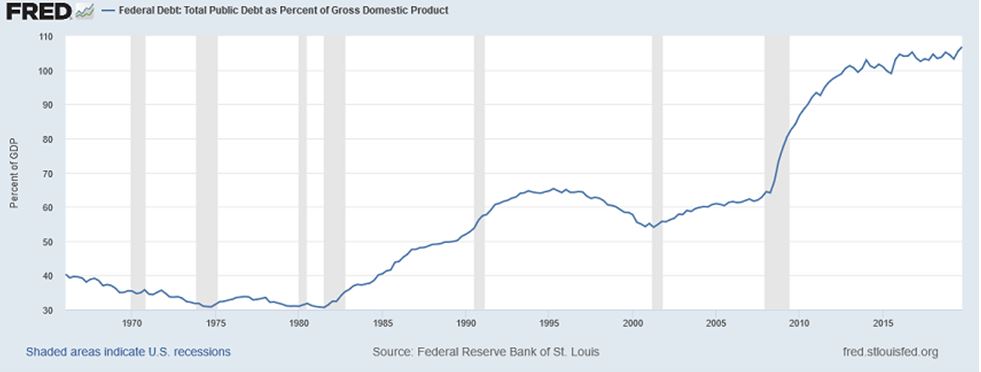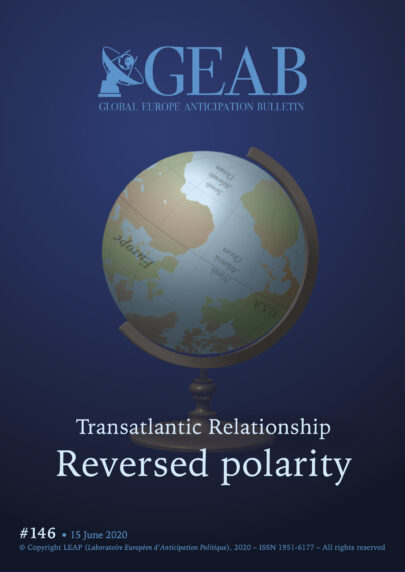GEAB 146
Transatlantic 21: The centre of gravity of the transatlantic relationship is shifting towards Europe

Since 2006, the global systemic crisis described by the GEAB has referred to the ‘system’ founded in 1945 in the aftermath of the WW2.[1] Nevertheless, at the heart of this world order is the transatlantic relationship, a link between the USA and Europe based on a double predicate: Europe needs the American guardian so that, firstly, its nations are prevented from killing each other and, secondly, it prospers economically. The first part of the equation justified the creation of NATO in 1949,[2] while the second is linked to the famous Marshall Plan launched in 1947, which gave birth to OECD.[3]
Although these institutions were placed on the old continent, Europe’s self-destruction in 1939-45 gave a territorially unscathed America[4] a major strategic advantage in this relationship. Thus, the Western-centric world that emerged from WW2 was predominantly American-centric for more than 70 years. That said, while the visible political power of the transatlantic axis resided in Washington during that time, it was largely underpinned by Europe’s economic and moral success. But in the 1990s, the US, intoxicated by the collapse of the Soviet empire (self-interpreted as a personal victory), was a little quick to overlook the role played by Europeans (Western European diplomacy,[5] the Helsinki Agreements,[6] Polish Solidarity[7] and other similar revolutions and movements in satellite countries,[8] the Czech Velvet Revolution,[9] the failure of the economic model,[10] the Russians themselves of course[11]) and tended to believe that they were the masters of the world.
This is how Bush Sr. inaugurated the post-Cold War era with the concept of a ‘new world order’. The expression was borrowed from President Woodrow Wilson, who used it to launch the idea of the League of Nations[12] (a world order shared among nations). Far from Wilson’s genius, G.H.W. Bush used it to claim that ‘there was no alternative to American leadership’, a leadership that immediately resulted in the first Gulf War in 1991.[13]
 Figure 1 – Federal debt: total public debt as percent of gross domestic product 01/1966 – 10/2019
Figure 1 – Federal debt: total public debt as percent of gross domestic product 01/1966 – 10/2019
Over the last 30 years, as a result of world leadership through war, America has lost its former moral credibility and has been financially ruined (in 1989, the US debt/GDP ratio was 50%, today it is 136%),[14] but it has held on thanks to its monetary empire and to its European pillar, the moral and economic security of which underpinned the American power.
In this process, the transatlantic alliance has inevitably turned into a yoke that Europe has constantly attempted to shake off over the last twenty years: launching the euro,[15] refusing to follow the US into the second Gulf War,[16] claiming its own sovereignty,[17] marginalising the United Kingdom,[18] launching INSTEX[19] and so on. But the more the Europeans raged, the tighter the halter became.[20] That’s the moment D. Trump arrived, seeking to impose his will even more visibly than the others and thereby confirming the decoupling of the EU from the US (calling into question NATO[21] and various trade relations[22]).
As we had anticipated, the two collateral victims of this policy have been the EU, as it has developed since the Maastricht Treaty[23] in 1992, and America, leader of a great world disorder inaugurated by Bush Sr. in 1991. We will not mourn either of them. For beneath the EU and America, we will begin to envisage what Europe and the USA have really become; better than that, we will envisage what Europeans and Americans have become. And, based on that, both sides of the North Atlantic will finally be able to reinvent themselves and rebuild their alliance.
Indeed, the transatlantic link is not about to disappear. The US and Europe have a common history, culture and values (which need to be rethought as far as values are concerned), and many instruments strongly connect the two shores – institutions, trade, media, civil society, businesses, various networks,…
We do not therefore anticipate the disappearance of the transatlantic relationship, but its re-founding, based on new transatlantic socio-political and global geopolitical realities on the one hand, and on Europe’s initiative on the other. Indeed, the new realities are giving Europe new impetus, for the following reasons:
- Europe is ahead of the United States in terms of reinventing itself: the many crises it has experienced over the last twelve years have already largely transformed the old continent.
- As we saw last month, American strategic assets (the big techs) are already being redeployed on the transatlantic axis, which they are strengthening in the context of a true partnership of equals with the Europeans.
- The Covid-19 spotlight is revealing all of America’s weaknesses.[24]
The laws of the system make it clear that this shift will go hand in hand with a profound transformation of the four components of the transatlantic relationship: the US, Europe, the relationship itself and the world.
Very succinctly:
- A balanced bilateral relationship between Europe and the US (eventually Europe/North America, or Euro-Russia/North America).
- The integration of all ‘infra’ levels of governance (national, regional, metropolitan, citizens).
- The differentiation of its actors (‘communities’ rather than ‘unions’[25]).
- The inauguration of the geopolitical actor called ‘Europe’.
- A partner in the invention of the new multipolar world order.
- Founded on the new tech tools of a common global administration.
Of course, reversing a polarity is not an easy task and a real catastrophe could result from a piloting error. We shall see later, in the ‘Peace in the Middle East’ article, that the test for the enthronement of Europe as the new centre of gravity of the transatlantic relationship will begin on 1 July. Let’s hope that Europe will prove it has learned from its decades of more or less passive observation of world affairs and from its own past mistakes…
Europe’s regaining control of the transatlantic rudder will enable the US at last to look after its own passengers, who are in great need of it. It is, in any case, in this spirit that the handover must take place in order for it to be a win-win solution.
Join the GEAB Community on LinkedIn for more discussions on this topic.
_____________________________
[1] The landmark article that made the GEAB known around the world in February 2006 was entitled: ‘Release of major world crisis: The end of the Western World we have known since 1945’. Source: GEAB, 15/02/2006
[5] Source: Hypothèses, 13/02/2020
[6] Source: Finland’s Relations with the Soviet Union, 1944-84, Roy Allison, St Antony’s/MacMillan Series, 1985
[7] Source: Europe and the End of the Cold War: A Reappraisal, Frederic Bozo, Marie-Pierre Rey, N. Piers Ludlow, Leopoldo Nuti, Routeledge 2008
[8] Source: Eastern European Revolutions of 1989, Study.com
[10] Source: Why the USSR Collapsed Economically, Investopedia
[13] Source: George H.W. Bush Announces Post-Cold War Strategies during Persian Gulf War, University of Richmond
[14] Source: The Balance, 01/06/2020
[17] Source: Europe’s Future: Decoupling and Reforming, Sergio Fabbrini, Cambridge University Press, 2019
[18] Our readers know that we consider Brexit to be at least as much the work of the Europeans as that of the British. Source: The Guardian, 19/10/2015
[19] Source: The Guardian, 05/12/2018
[20] The Ukrainian crisis of 2014 was, in our view, direct US pressure to prevent Europeans from following their own destiny. Source: NATO, Russia and the Ukrainian Crisis, 10/2016
[21] Source: “Trump questions the core of NATO, including Montenegro”, NYT, 18/07/2018
[22] Source: Transatlantic Relations in the Age of Donald Trump, 2018
[23] One of the reasons for the EU’s great difficulties over the last 30 years can be considered to be the inadequacy of the Maastricht Treaty, designed before the fall of the Soviet Union but signed and deployed in a post-Cold War world.
[24] We will argue these various points in the rest of this bulletin, concluding that the centre of gravity of the transatlantic axis is shifting towards Europe.
[25] Could the federalists’ old dream of a ‘United States of Europe’ change, ironically enough, into that of a ‘Community of American States’?

Last month, we anticipated a risk of derailment of the centuries-old machine of the American elections. With optimism, we hypothesised that an exceptional context could lead to an extraordinary election [...]
As the virus attacks what has been viewed as the core of the Western reactor since 1945, namely America, it is propelling Europe, regenerated by twelve years of reflection, to [...]
In theory, Europe currently seems much more compatible with the multipolar world of the 21st century than the United States. But it still needs to prove it. From 1st July, [...]
Digital data is the new black gold; the adage is familiar, but the stakes involved less so. With the COVID-19 pandemic, the world has achieved a two-year digital transformation within [...]
Energy producers, distributors and investors worldwide are currently facing a triple whammy of falling demand, falling capacity and price wars that cannot fail to undermine the international corporate-based energy system [...]
Oil: Displacement of another centre of gravity China, the largest importer of oil, is about to finalise the security of its energy supply system. Its strategy is based on the [...]

Comments